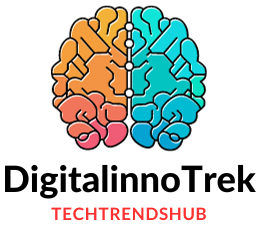Introduction
Artificial Intelligence (AI) has been a topic of fascination and speculation for decades. In recent years, advancements in technology have brought AI to the forefront of various industries, sparking debates about its potential to surpass human intelligence. In this blog post, we will delve into the capabilities of AI and examine whether it has truly surpassed human abilities.
The Power of AI
AI has revolutionized numerous fields, including healthcare, finance, and transportation. One of the key advantages of AI is its ability to process vast amounts of data at incredible speeds, enabling it to identify patterns and make predictions with remarkable accuracy.
Take the healthcare industry, for example. AI can analyze medical records, genetic data, and clinical trials to assist doctors in diagnosing diseases and developing personalized treatment plans. This not only saves time but also improves patient outcomes by leveraging the power of AI’s data-driven insights.
In the financial sector, AI algorithms can analyze market trends, predict stock prices, and optimize investment strategies. This has led to more efficient trading and better decision-making, benefiting both individual investors and large financial institutions.
AI’s Limitations
While AI has made significant strides, it still has limitations that prevent it from completely surpassing human intelligence. One of the main challenges is AI’s inability to replicate human emotions, empathy, and creativity. These qualities are inherently human and play a crucial role in various aspects of life, such as art, music, and social interactions.
Additionally, AI relies heavily on the data it is trained on. If the training data is biased or incomplete, it can lead to skewed results and reinforce existing inequalities. Human intelligence, on the other hand, can adapt, learn, and make decisions based on multiple factors, including intuition and ethical considerations.
AI and Human Collaboration
Rather than viewing AI as a rival, it is more productive to see it as a powerful tool that can augment human capabilities. By combining the strengths of AI with human expertise, we can achieve remarkable results.
For instance, in the field of autonomous vehicles, AI can analyze real-time data from sensors and cameras to make split-second decisions. However, human drivers still play a crucial role in handling complex situations and ensuring passenger safety.
In customer service, AI-powered chatbots can handle routine inquiries, freeing up human agents to focus on more complex and personalized interactions. This improves efficiency and enhances the overall customer experience.
Conclusion
AI has undoubtedly made impressive advancements and has proven to be a valuable asset in various industries. However, it is important to recognize that AI is not a replacement for human intelligence. Instead, it should be seen as a complementary tool that can enhance human capabilities.
By understanding the limitations and strengths of AI, we can harness its power to drive innovation and improve our lives. The future lies in the collaboration between AI and humans, where both can work together to achieve remarkable feats.
So, rather than fearing AI, let’s embrace its potential and explore the endless possibilities it offers.

